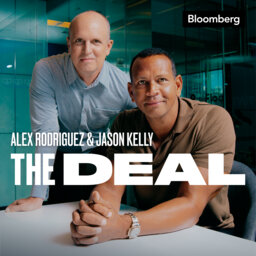What Sports Teams Can Learn from Tiktok Star Josh Richards
In this episode of The Deal, Alex Rodriguez and Jason Kelly sit with entrepreneur Josh Richards to discuss his social media empire. Richards explains how he cracked the algorithm to make a name for himself on TikTok, what he’s learned from his partnerships with Dave Portnoy and Mark Wahlberg and why sports teams and star athletes should follow his lead in creating content that can meet target demographics where they are.
 The Deal with Alex Rodriguez and Jason Kelly
The Deal with Alex Rodriguez and Jason Kelly


